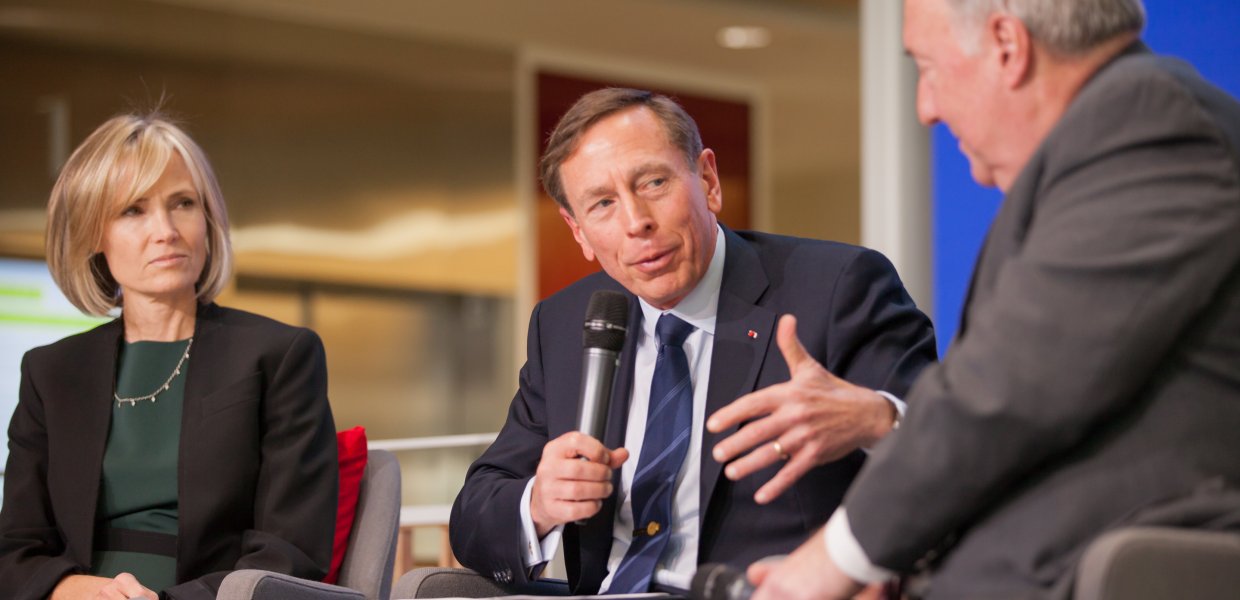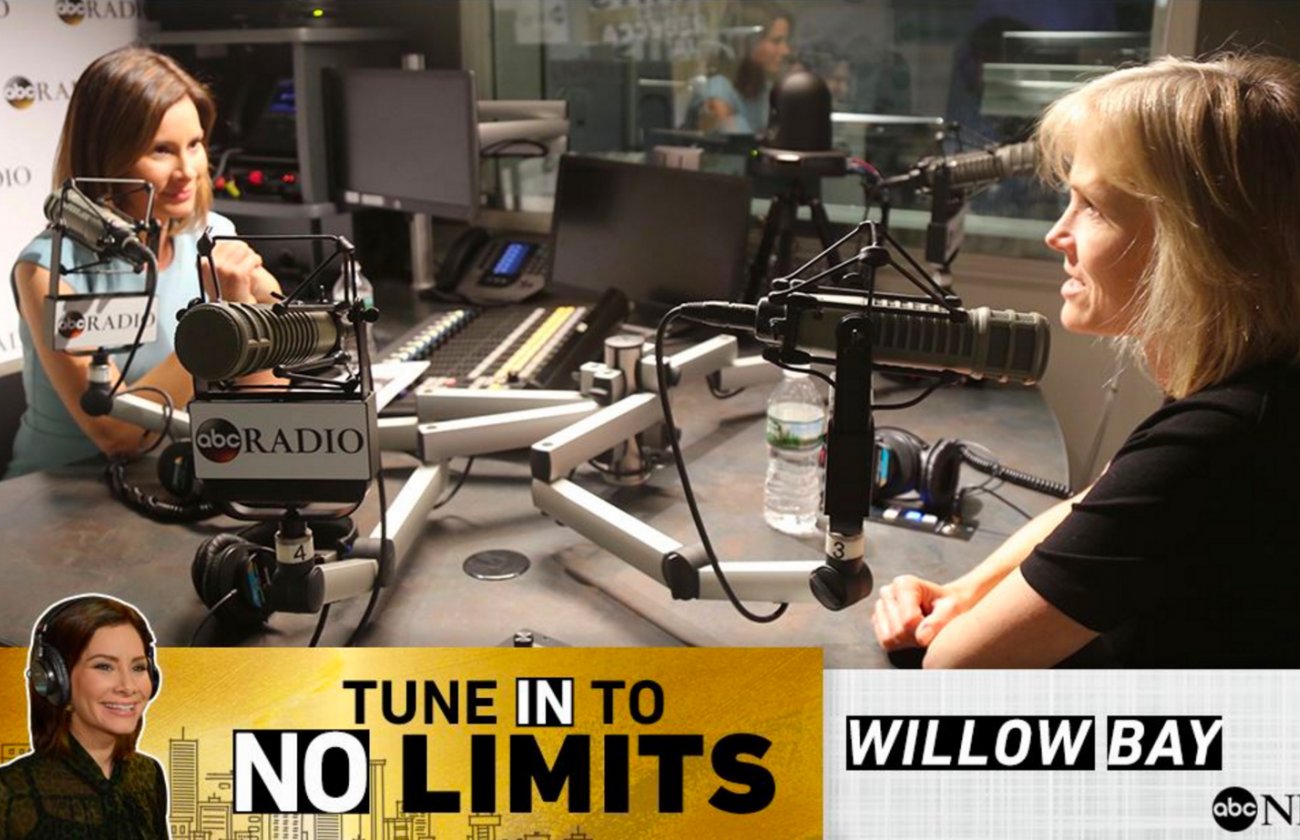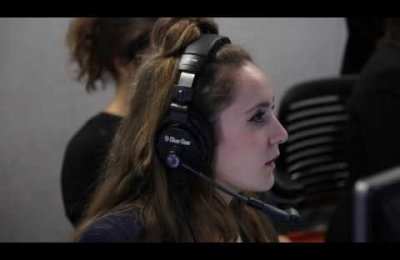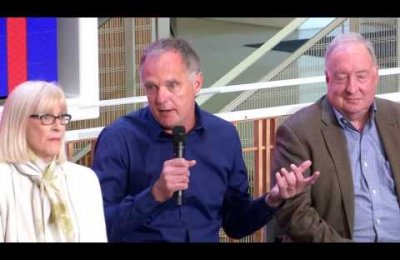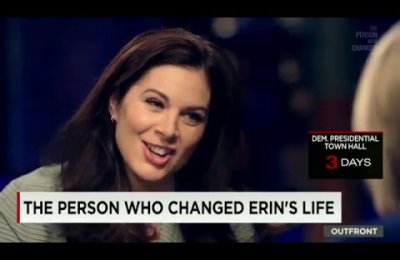Students, faculty, and staff filed into Wallis Annenberg Hall for an open-forum discussion with retired General David H. Petraeus on Nov. 4. The special event was moderated by Director Willow Bay and Vice Dean Philip Seib.
To begin the conversation Bay quite candidly asked Petraeus to comment on Syria, Afghanistan, Iraq, and the ensuing violence that various news outlets have feverishly been reporting on. With widespread national controversy about the possibility of taking American boots off the ground, Bay and Seib took the opportunity to also ask Petraeus about how leadership in the armed forces navigates its relationship with the media. Petraeus’s answers revealed how entangled media and military actions have become.
“It’s accurate to say that there are no military solutions to the problems in Syria, or in Iraq for that matter,” Petraeus said. “There is however, a military context that is is very much necessary in Syria if people are to have meaningful discussion and realize that people are interested in negotiating something.”
Though he does not know exactly how many soldiers will remain on the ground in the coming years, Petraeus mentioned that he is steadfast in his belief that the U.S. armed forces will definitely be providing a measure of support in troubled nations. And he noted that civilians have, and will continue to turn to media outlets to express their helplessness and frustration.
In issues of war and national unrest, Petraeus believes that the media should strive to accomplish three major responsibilities: reporting objectively, providing an appropriate level of context, and characterizing the story accurately.
In order to elaborate on his second point, Petraeus provided the audience with the following example:
“Let’s say there’s a story in which a U.S. soldier just shot at a vehicle full of civilians. What if it was in broad daylight down in the southern part of Iraq where there hasn’t been a suicide bomb incident over the last 2 years, and there was no intelligence that suggested that was coming there way...or what if it was the middle of the night, and there was a rainstorm, and there had been 3 car bombings that night already, and another one coming, and the vehicle had just barrels on the move?”
Speaking about his personal experiences with the media, Petraeus described times when he thought he was having an off-the-record conversation with a reporter, but his quotes were published. Despite such occurrences, however, Petraeus revealed that his relationship with the media is “quite liberal.”
Another topic that Bay, Seib, and Petraeus discussed was the use of media to leak government military intelligence such as in the case of Edward Snowden and the National Security Agency. Petraeus categorizes such leaks as the worst possible way the media can be used as a weapon to falter national security enforcement efforts.
“Snowden was just an industrial strength release of many of the most sensitive programs out there, thankfully not all and not all the sources etc, but that has been a real blow…” Petraeus said. “We attracted extremist leaders who truly just changed the way they communicate. They changed the way they operate, they improved their operational security. So that was a massive blow and is still tragically the gift that keeps on giving.”
The interview was followed by a question and answer session during which audience members had the opportunity to ask Petraeus questions on a range of topics including how the media affects his ability to perform his job. According to Petraeus, one of the biggest problems arises when the media reports on false narratives.
“Context is really really different and it really matters,” Petraeus said. “And there have been times where the context has been improper.”
Petraeus also added that another problem is that these days extremist leaders are using the media to push out threats.
“ISIS has manifested itself in attacks in the United States that have been inspired by the Islamic state’s use of social media in a very skillful manner,” Petraeus said. “It’s certainly worrisome. I’ve talked to people, for example the New York Police Department Intelligence Division of Counterterrorism, and they are very very actively working to identify individuals who might be associated with such activity.”
Senior Matthew Tufts, whose professor gave him the opportunity to attend the event in lieu of going to his investigative journalism class, shared his thoughts on why such a candid conversation was beneficial for the attendees.
“Being able to work with the media is super important because there is a certain relationship that government officials have to have in order to exchange information with the media without exchanging too much, but also making sure that people aren’t just speculating and that the truth is actually still getting out.”
Tufts added that the ideals of authentic reporting are part and parcel of his coursework in Broadcast Journalism since investigative reporting requires careful handling of controversial topics. Tufts acknowledges that at some point in his career he will have to interview sources who won’t be willing to reveal 100 percent of the information, but the relationship of trust that he builds with his sources will allow him to effectively communicate the situation.
For many other students in the audience the event was a way to get updated on national issues that are at the forefront of media and public attention and are sparking discussion. Petraeus’ final words reflected a similar idea.
“Everybody needs to preserve and protect some of the out of the box thinkers who are very constructive in igniting intellectual discourse,” Petraeus said. “A democracy like ours works best when you have informed citizens who ask the big questions.”
